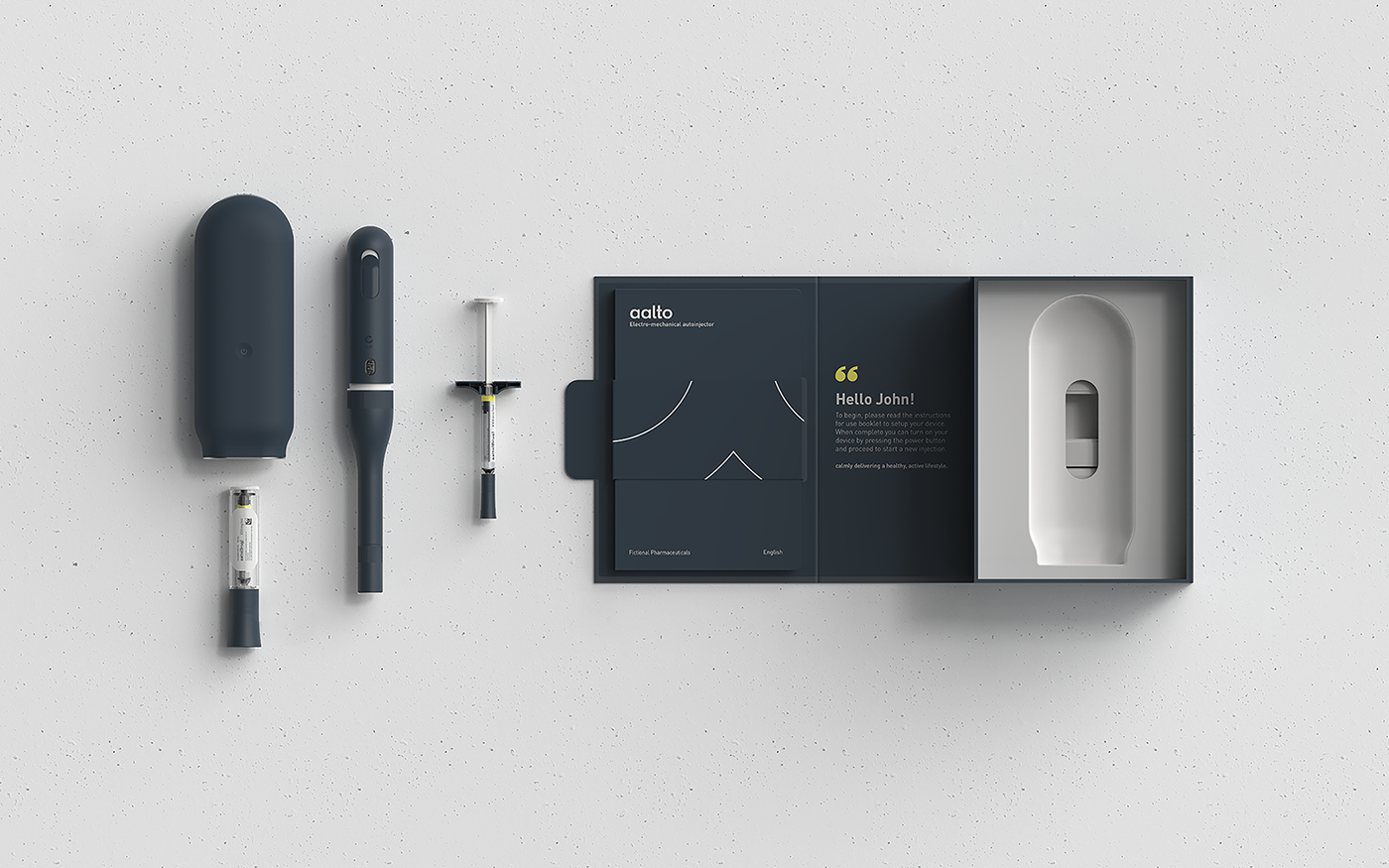
In our increasingly complex and connected world, medical devices are part of an ecosystem that includes numerous touchpoints, such as packaging, instructions for use (IFU), digital services and smartphone apps. Each of these touchpoints can have a significant impact on a patient’s experience and their perception of a treatment.
Unfortunately, many medical products are designed by disconnected development teams with little or no concern for the overall patient experience.
Symptoms of disconnected, disparate design can be seen in inconsistent aesthetics, icons, colours, language, fonts and most worryingly, interaction cues. Accumulated evidence from testing products with users, indicates that a lack of harmony across product touchpoints leads to disjointed, confused and ultimately, poor patient experiences.

To demonstrate our approach, we developed a fictional drug brand, targeted at patients suffering with a chronic disease affecting their dexterity and quality of life. We then translated the brand into a design and user experience specification, to guide the development of a family of self-injection devices (a unit-dose syringe, mechanical and electro-mechanical autoinjector).
We spoke to patients to better understand their wants and needs, informing the brand promise, a statement which extols a higher-order emotional reward, creating a strong and meaningful connection with people.
The brand promise developed was ‘calmly delivering a healthy, more active lifestyle’. This aimed to relieve patients’ anxiety about self-injection but also to provide hope that the medication could improve their lifestyle.

Design concepts are evolved through sketching, 2D renderings and 3D prototypes, responding to technical, commercial and regulatory constraints. Stringent, regular user testing allows patient feedback and informs the evolution of the design.
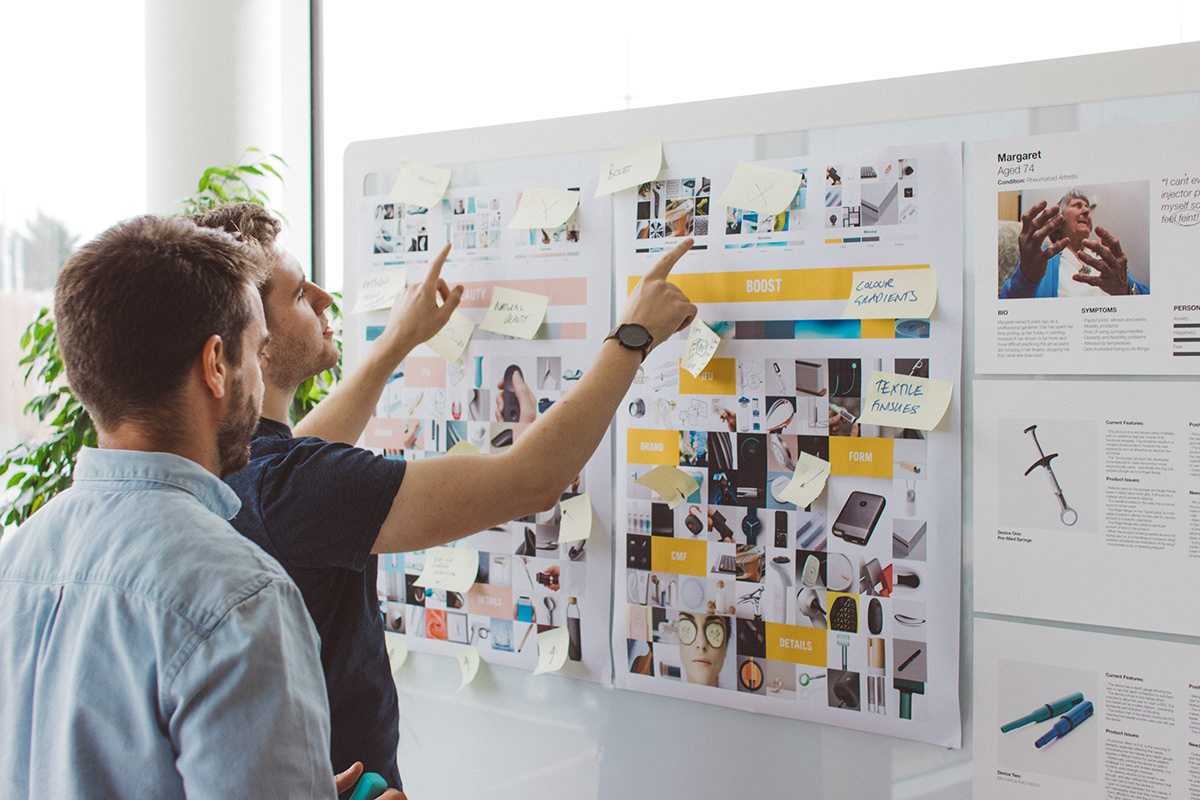



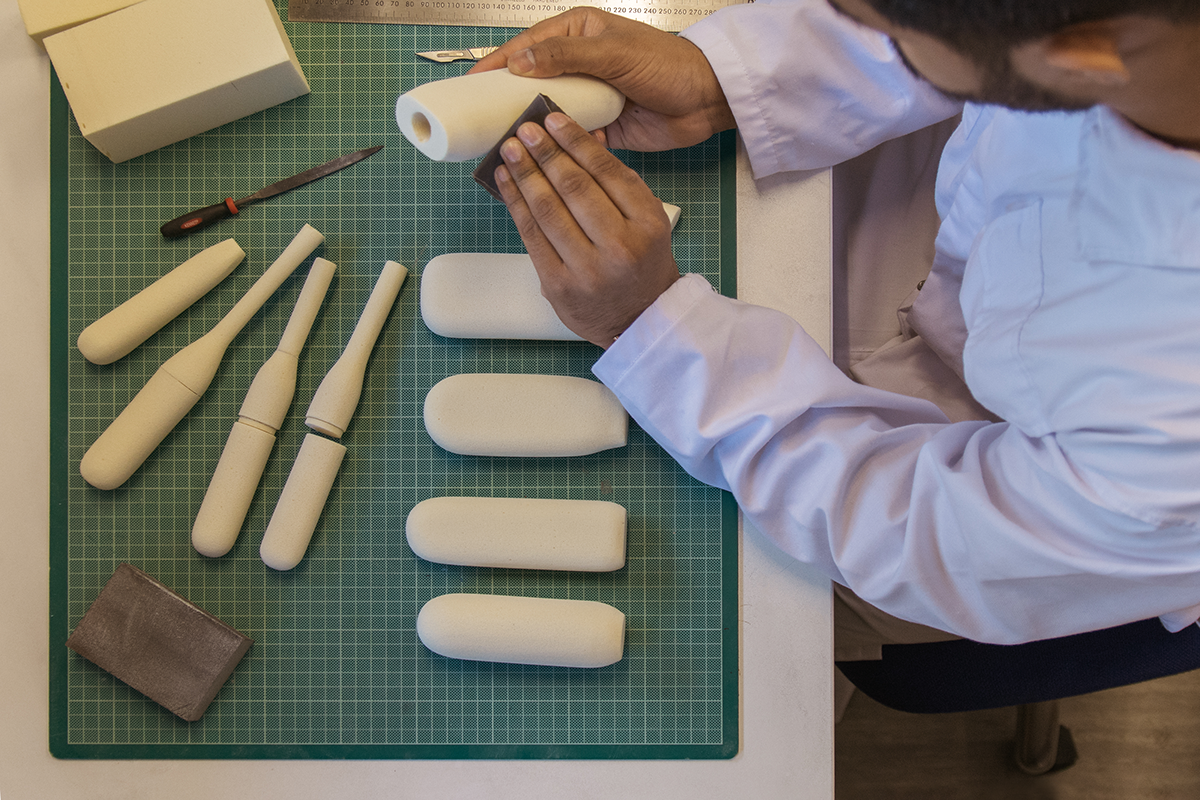
The name Aalto is derived from the Finnish translation for ‘wave’, which is taken from the CALM brand attribute, harnessing the soothing feeling of being near the sea. This is reflected in the Aalto logo, which uses an abstract, geometric wave form.
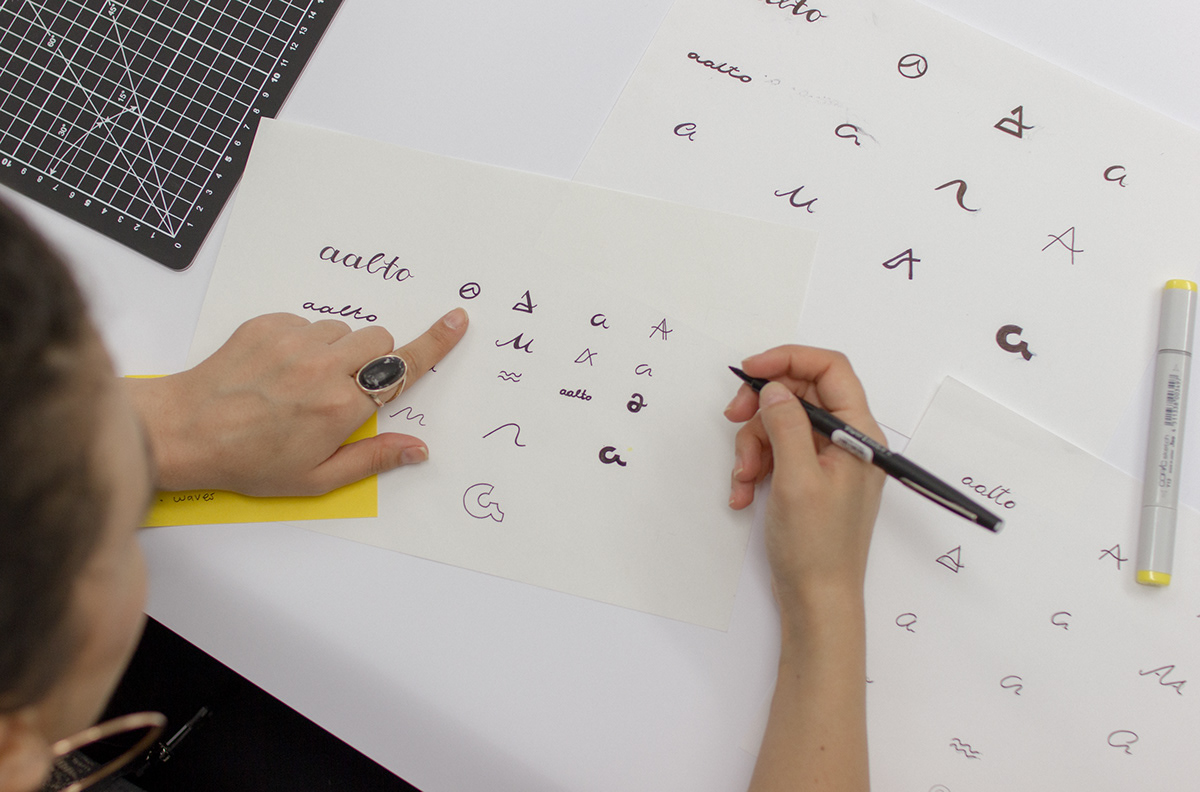
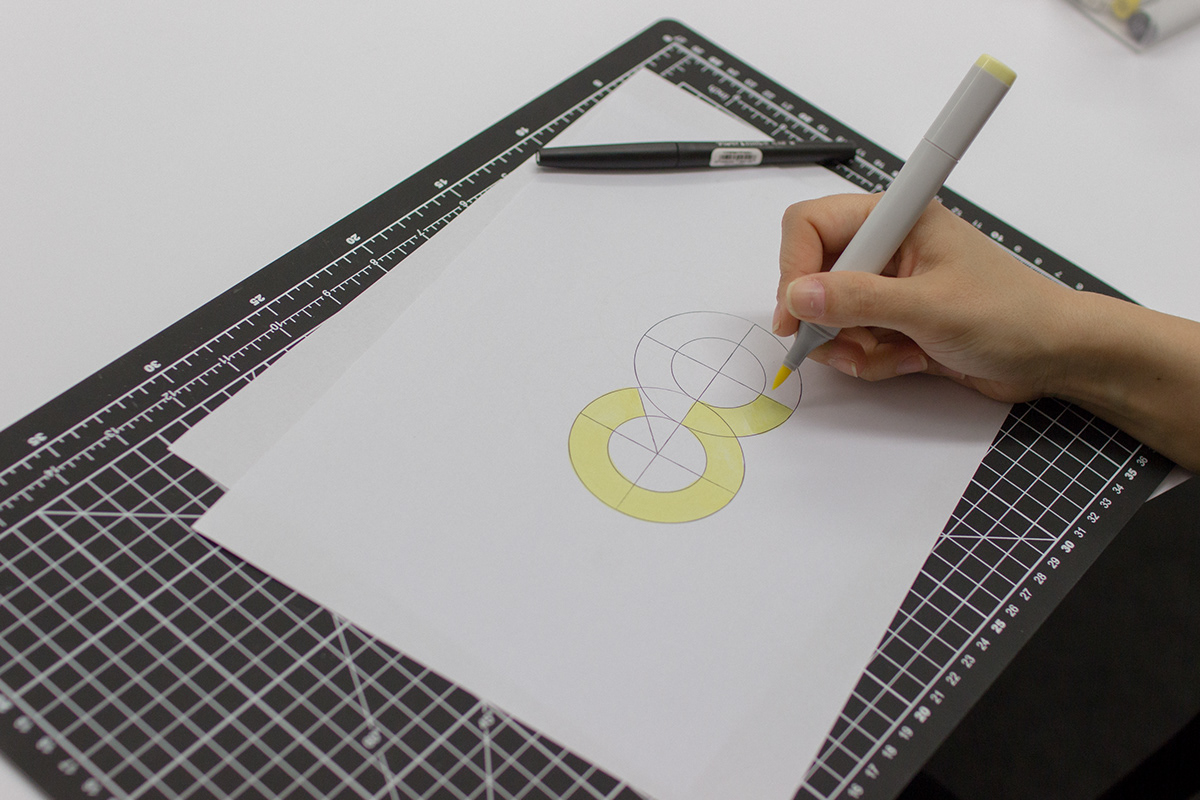
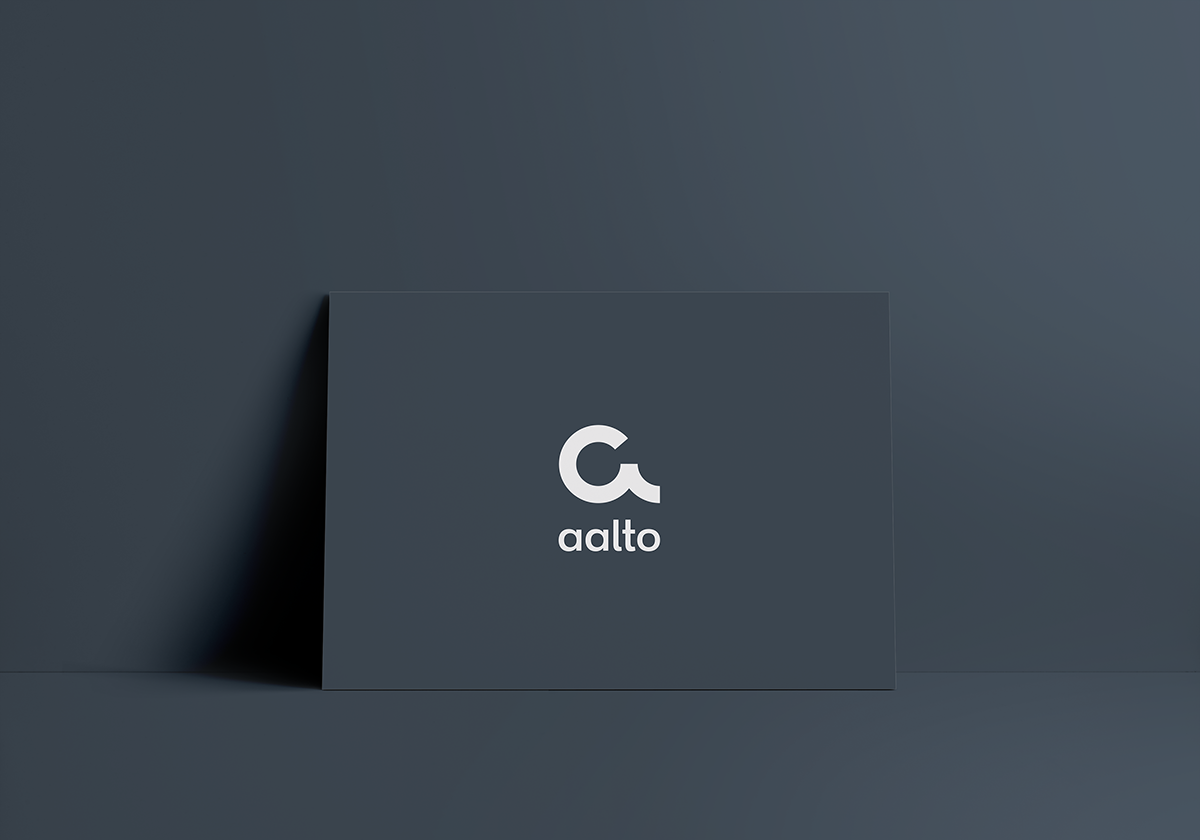
The Aalto autoinjector family uses robust, geometric forms to evoke a sense of TRUST.
Bold use of midnight blue with a contrasting yellow accent colour and the use of a tactile outer skin portray the ACTIVE brand attribute.
A sense of CALM is depicted in product detailing by using subtle ‘wave’ patterns on areas of the injectors. This indicates where (and how) patients should interact with the devices (twist, push and pull). Superfluous visual stimuli should be avoided, as it may detract from the device’s usability cues.
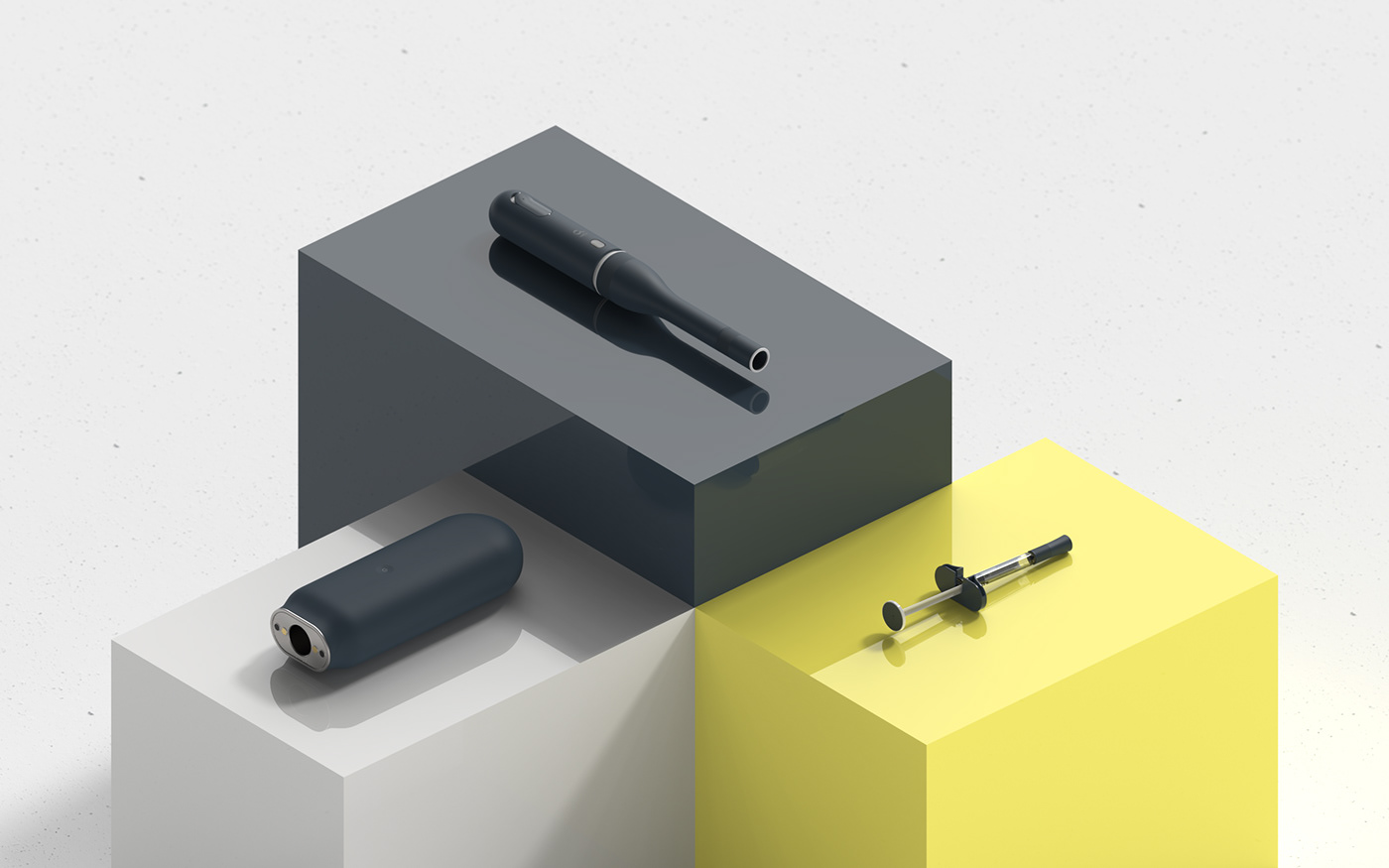


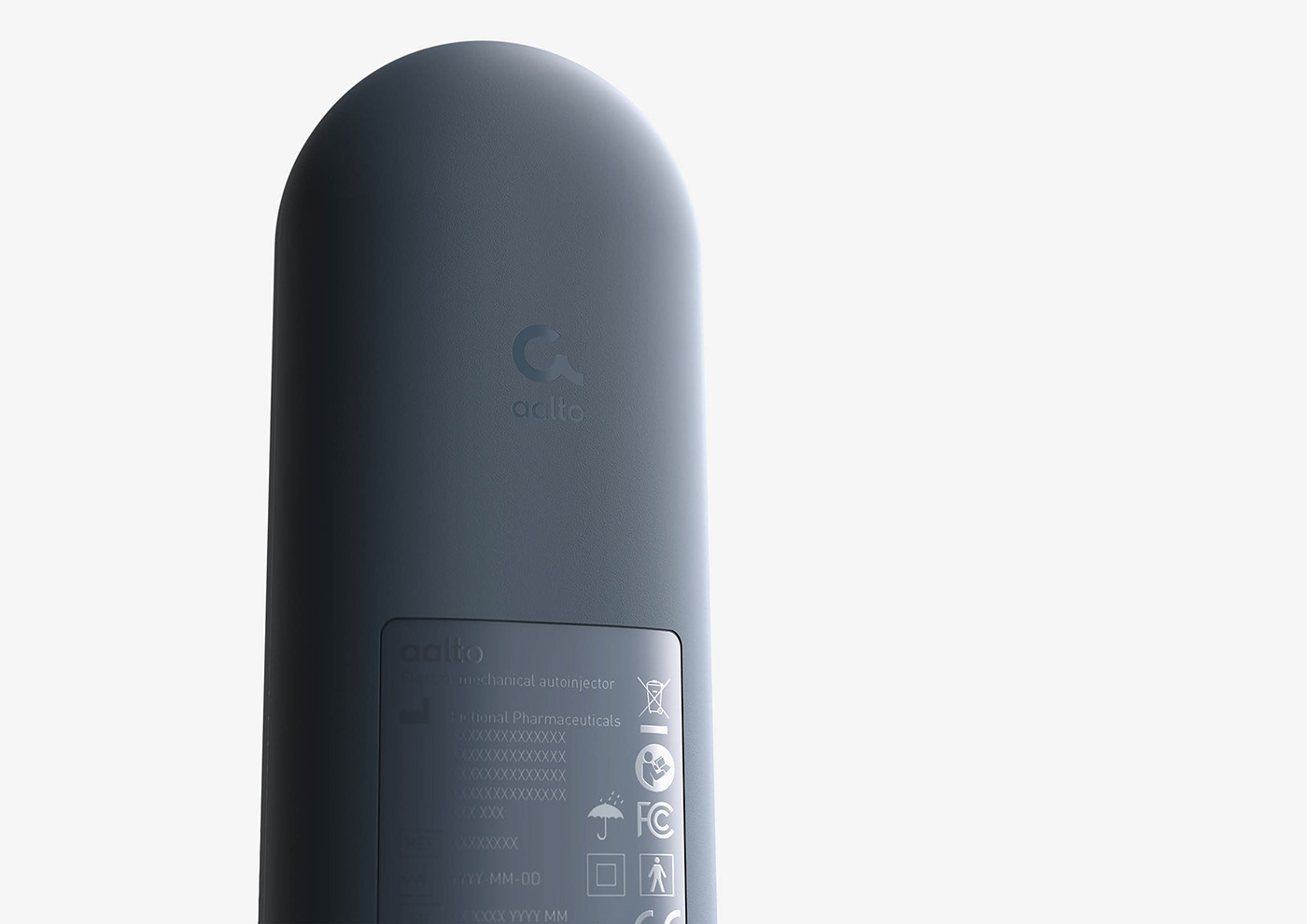
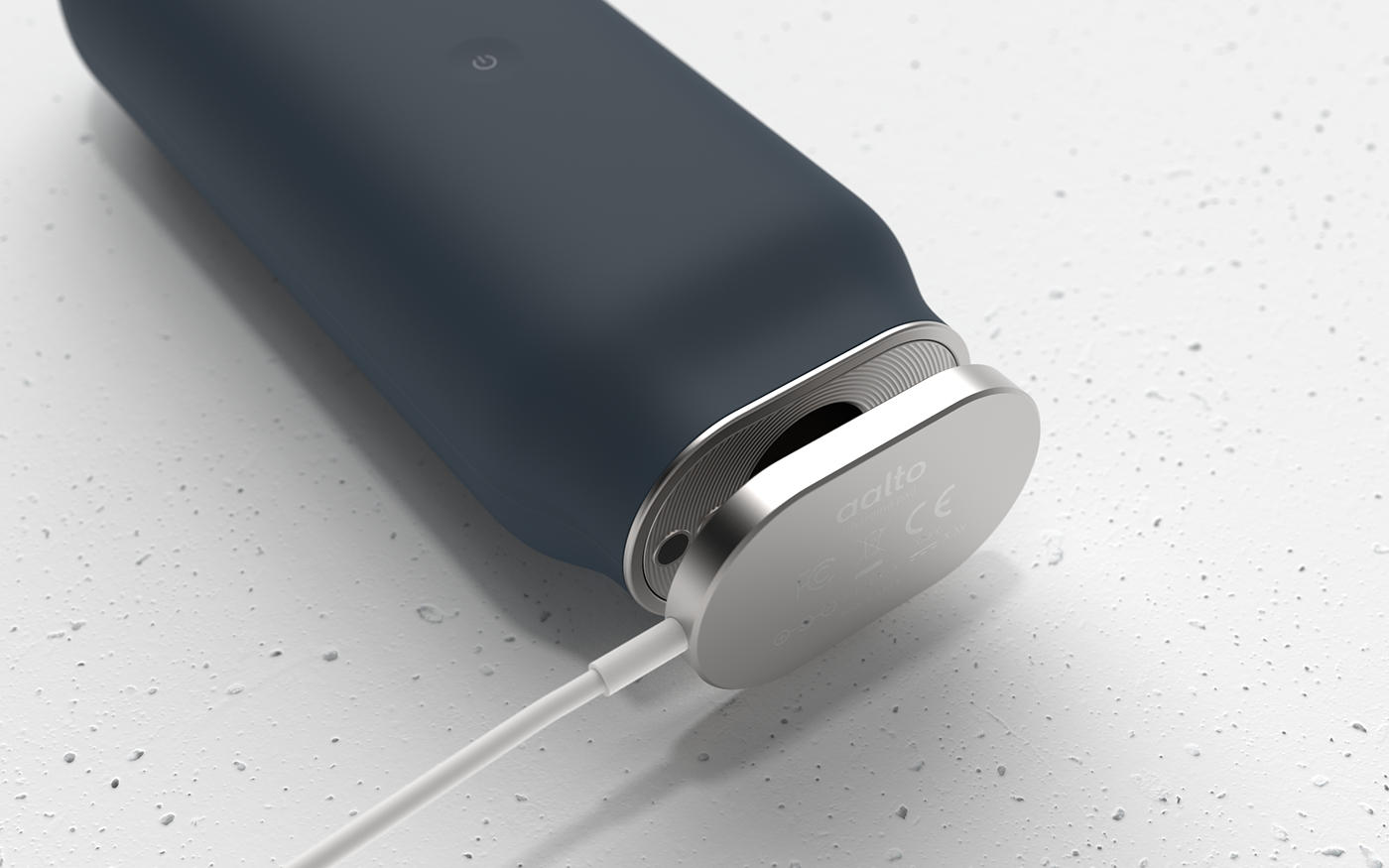
The Aalto injector packaging is designed to provide an enhanced unboxing experience. When the pack is opened, the injector and instructions for use are presented to the patient simultaneously, reducing confusion and anxiety, and further enforcing the brand attributes of TRUST and CALM.
In addition, brand and design language is embodied within the packaging and label design, through the use of colourways and typography. Not only does this maintain a seamless brand experience across another touchpoint but it also complies with strict regulatory guidelines.
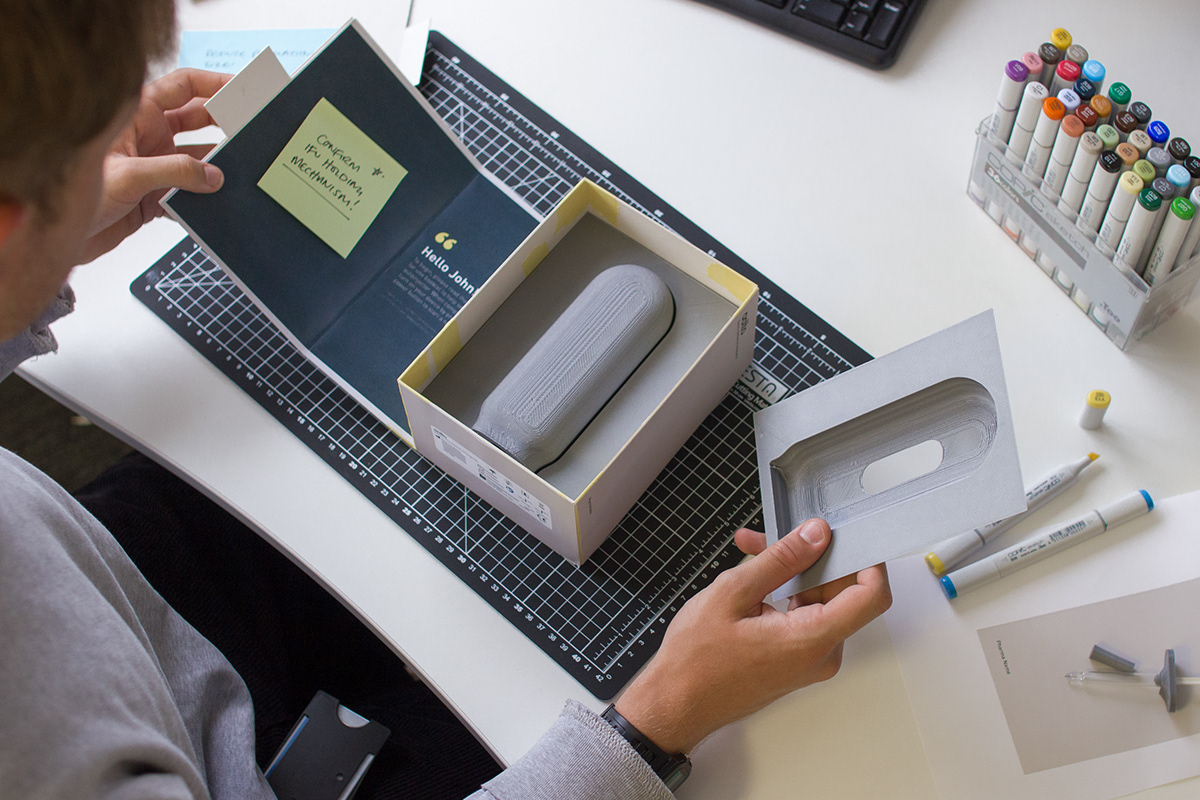
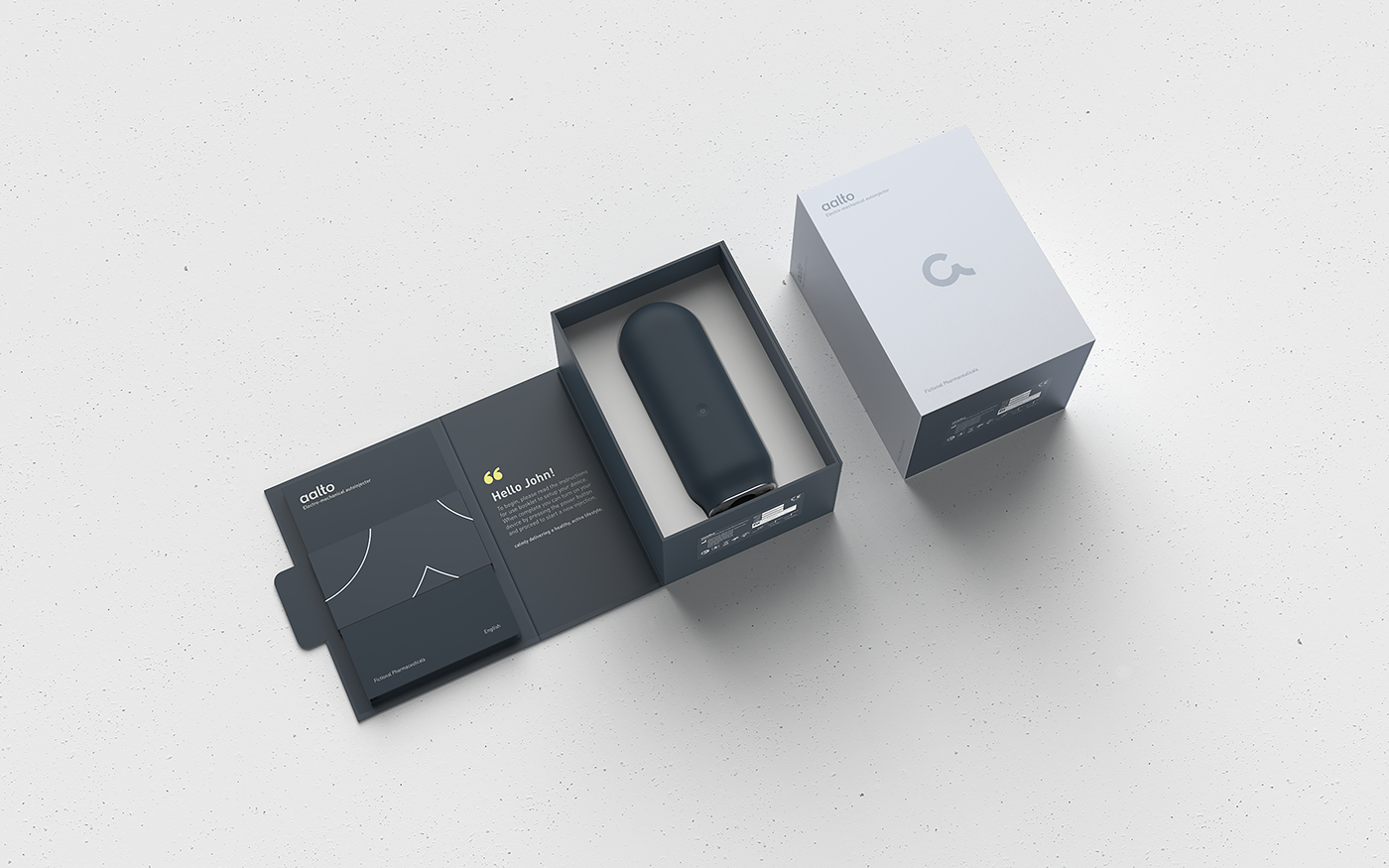
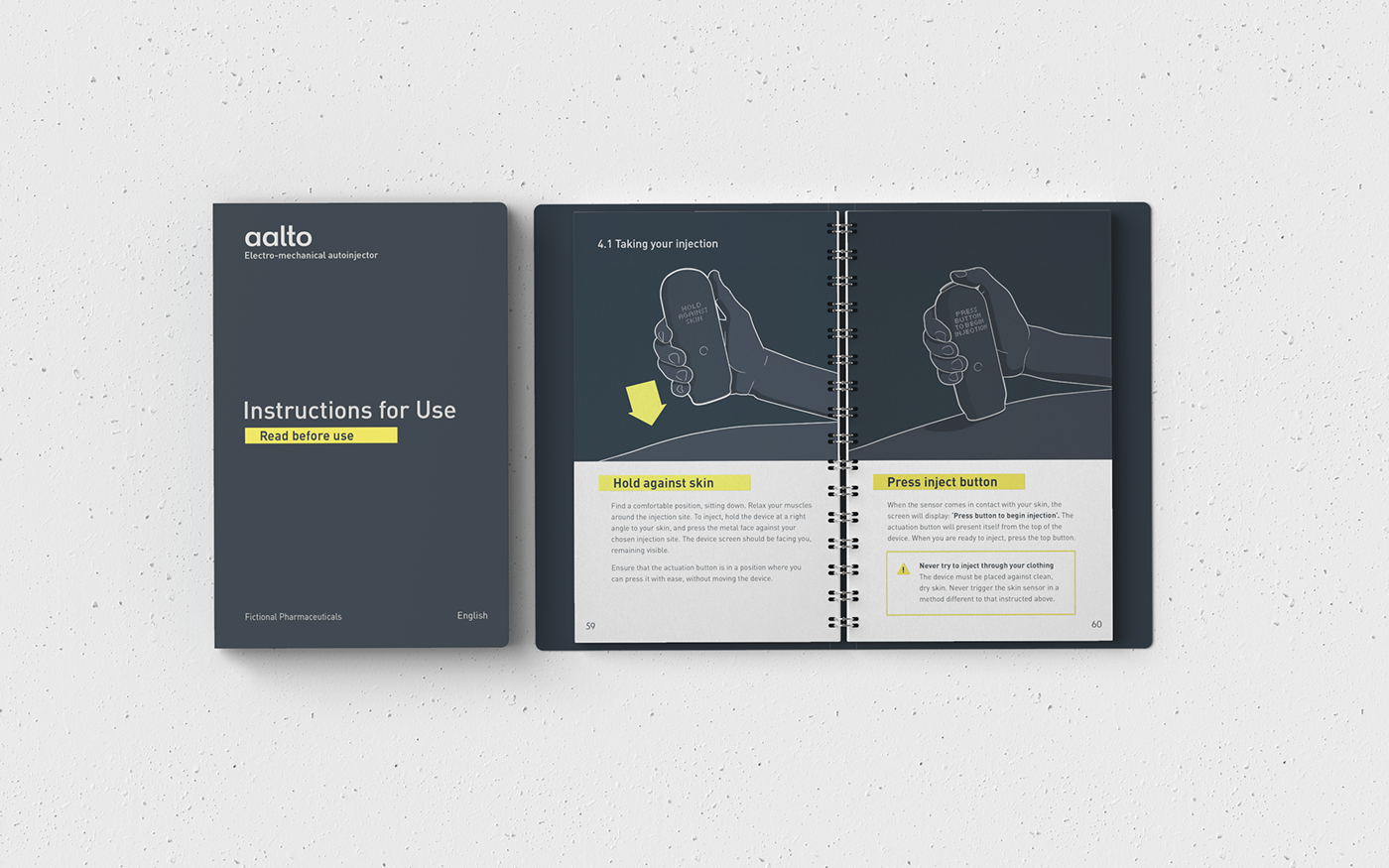
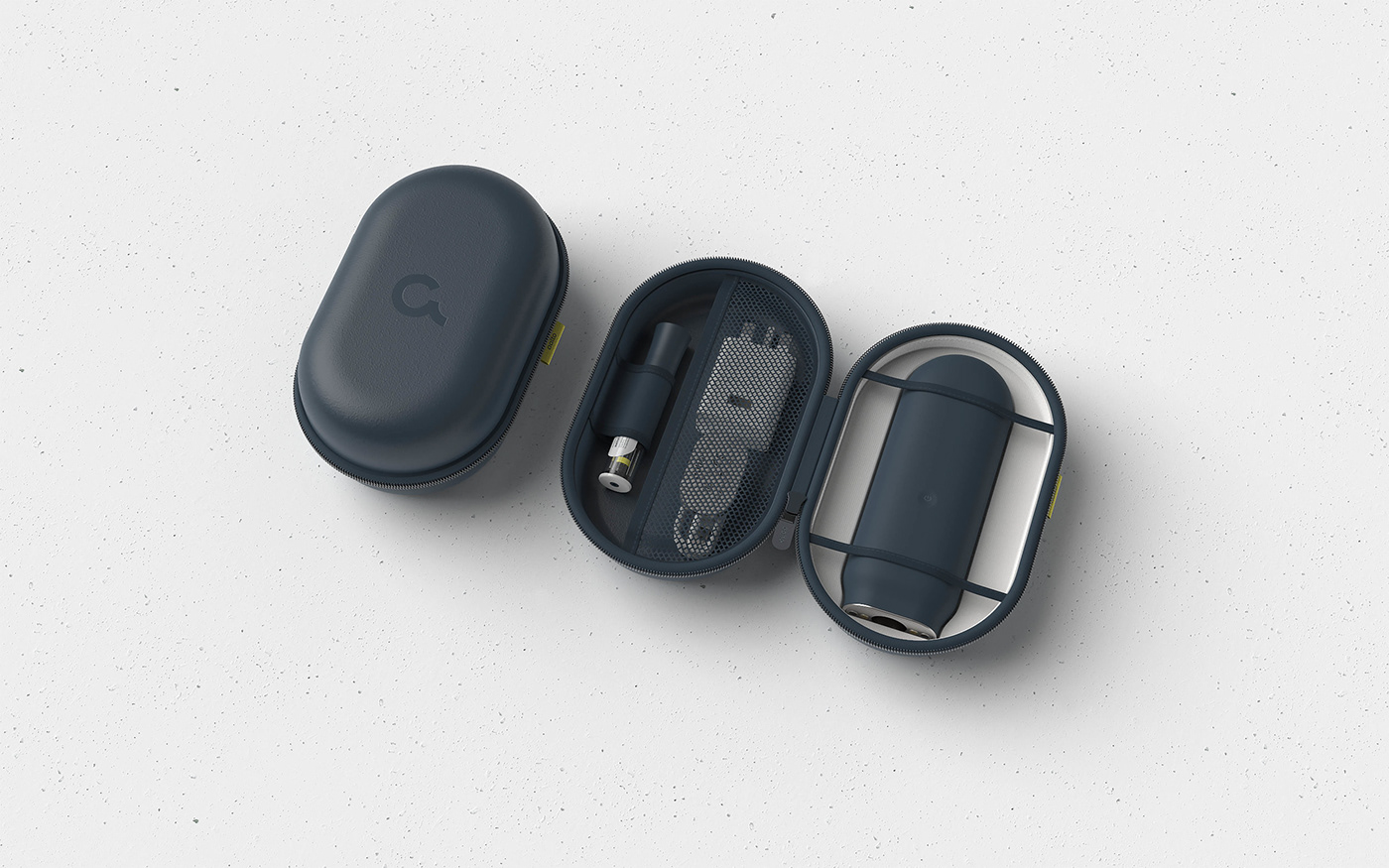
Interactive and aesthetic harmony are considered with gesture control across hardware and software.
The electromechanical autoinjector embodies this consideration. As a patient pushes the autoinjector against their skin, the digital interface and software responds to this physical interaction, guiding the user to push with and maintain the correct force.
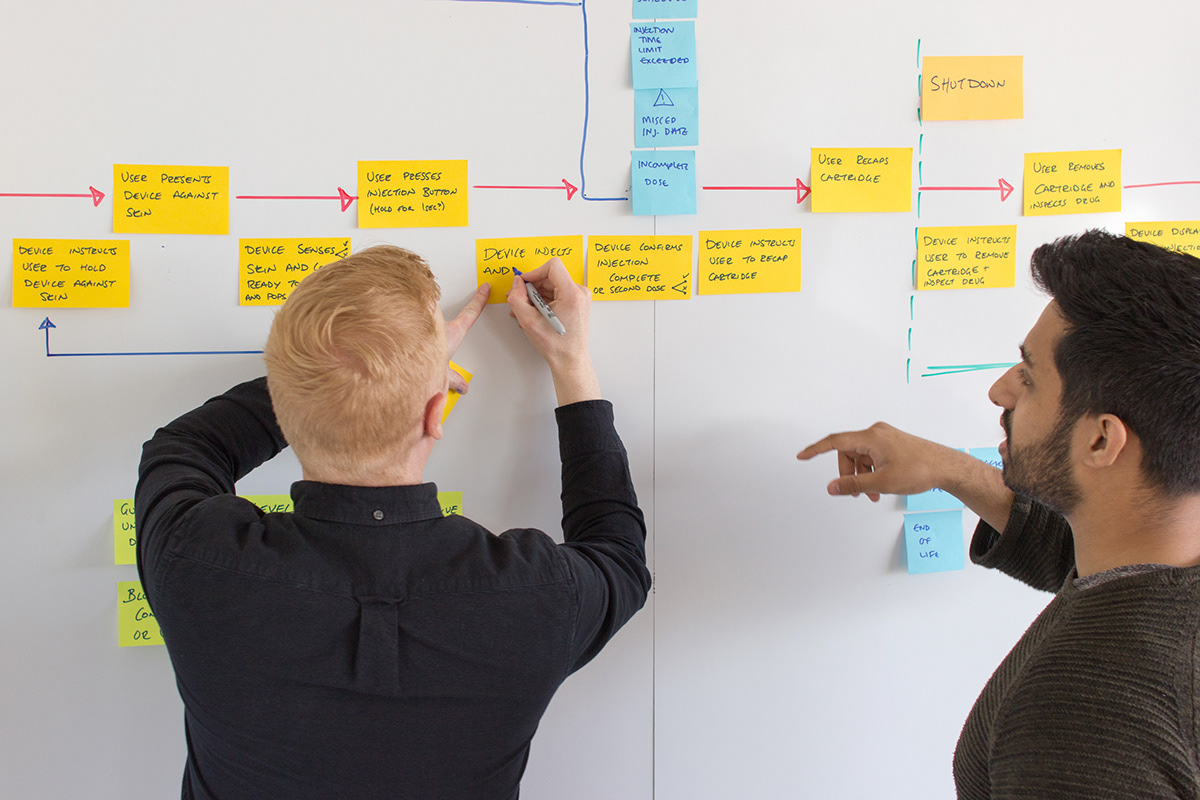


At Cambridge Consultants our collaborative teams of designers, engineers and human factors specialists tackle challenges like this every day. Through this article and our Aalto case study we hope to demonstrate both the importance and benefits of creating an integrated design and brand experience within the medical field. Aalto shows how this can be implemented across multiple levels and touchpoints, avoiding common pitfalls, such as disconnected development teams and a lack of focus on the overall patient experience.
This content was originally posted on Cambridge Consultants' website. Cambridge Consultants develops breakthrough products, creates and licenses intellectual property and provides business consultancy in technology critical issues for clients worldwide. For more than 50 years, the company has been helping its clients turn business opportunities into commercial successes, whether they are launching first-to-market products, entering new markets or expanding existing markets through the introduction of new technologies.






